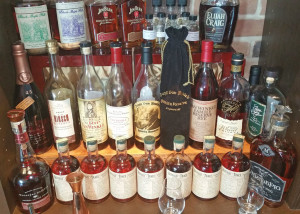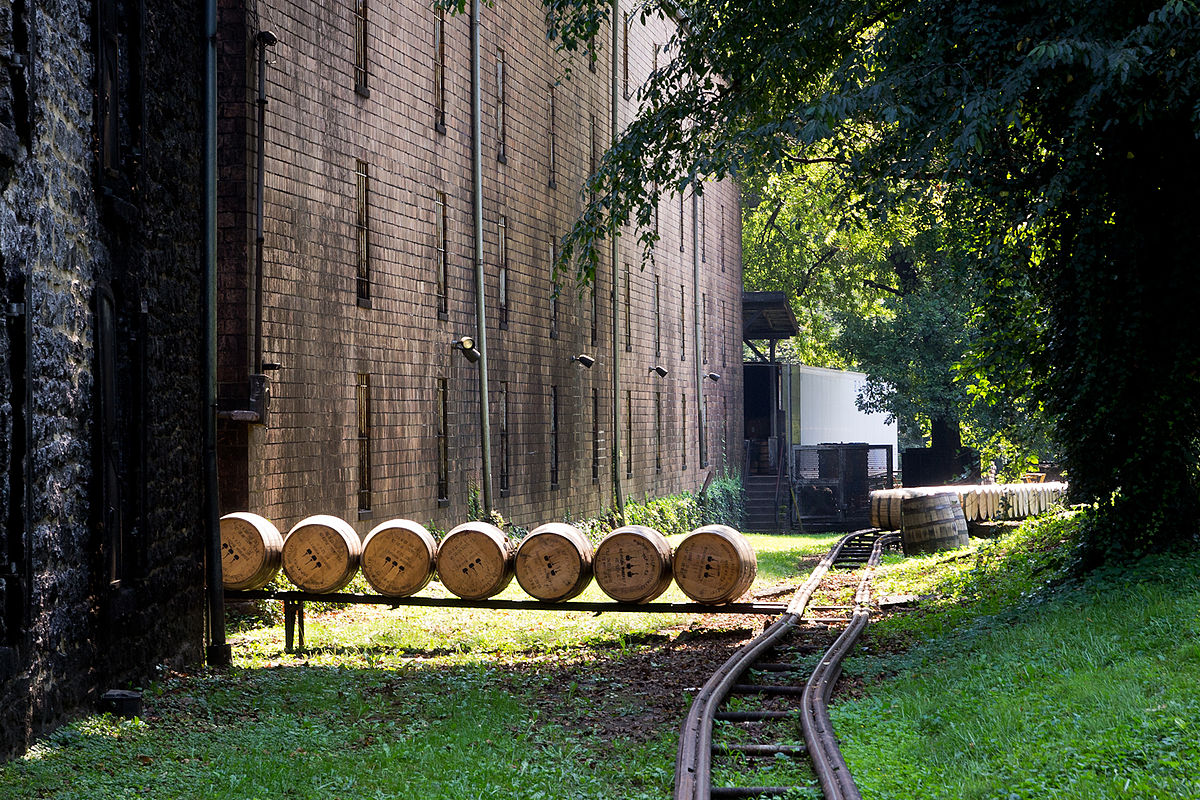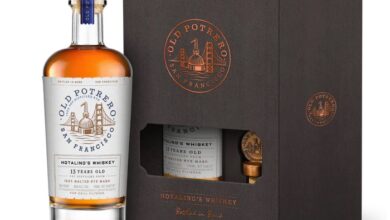By Richard Thomas

this or a rack of French wine?
(Credit: Kurt Maitland)
When it comes to booze collecting, nothing really compares to the rituals and trappings of wine collecting. The careful selection of big reds suitable for bottle aging and from a fine vintage; the cosseting of these bottles for years in a properly arranged cellar; the acquisition of a rare, aged bottle and consequent risk that the contents might have long since expired.
All of that is well and good if romanticism is the end-all, be-all of your collecting experience, but if you actually want to enjoy being a booze collector, whiskey trumps wine hands down. The reason comes down to one simple fact: whiskey keeps, and wine doesn’t.
Let us say you were lucky enough to get your hands on a 1961 Chateau Latour, widely regarded as one of the greatest wines of the 20th Century. Even assuming that bottle was very carefully handled, maximizing its preservation, odds are fair that the wine turned to a very expensive vinegar years ago. By way of contrast, a bottle of Old Overholt from 1907 will probably be doing just fine after 108 years, double the age of that legendary wine, so long as it was stored away from sunlight and the bottle remains unopened.
Whiskey’s durability vis-a-vis wine has a multiplication effect, piling on reasons why collecting whiskey is better than collecting wine: the long-term storage of whiskey isn’t as demanding as wine; buying a fine old bottle of whiskey is a surer prospect of having something drinkable should you open it; and likewise, if you purchase something today with an eye on keeping it for the long-term, you can be far more certain it will be drinkable decades later. For either the serious, collecting drinker or the investor, these are factors that cannot be beat.
For the just-mentioned serious collecting drinker, the virtue of durability keeps on giving, because it also means you can open a prized bottle, enjoy some, and put it back into storage with no worries. If you open a bottle of red wine, even the most elaborate of sealing and preservation will preserve a newish wine for no more than a month. An aged bottle can wilt in a matter of hours, sometimes even minutes, after it makes contact with the open air.
Whiskey also degrades, but it does so much more slowly, and how old the bottle isn’t a factor. Instead, how much air is in the bottle with the whiskey is the issue. This means you can open a prized bottle of bourbon or Scotch from your collection, draw a dram off every so often, and realistically expect that bottle to hang on to almost all of its character for many years.
One stereotype about whiskey drinking is that it attracts practical, down-to-earth people, so it’s unsurprising that collecting whiskey has so many solid, utterly practical virtues. It’s just a more forgiving pursuit than collecting wine, and therefore a more rewarding one as well.





One Comment